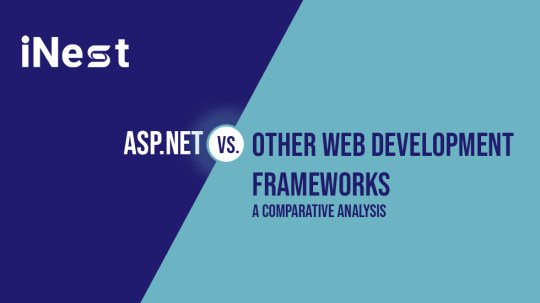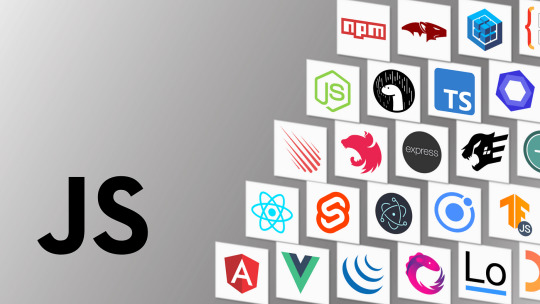#ASP.NET development framework
Explore tagged Tumblr posts
Text
ASP.NET vs. Other Web Development Frameworks: Features, Benefits, and Use Cases
In the dynamic world of web development, selecting the right framework is crucial for creating robust and scalable web applications. Among the plethora of options, ASP.NET, a Microsoft-powered framework, stands out for its versatility and enterprise-grade capabilities. This article explores how ASP.NET compares with other popular frameworks like PHP, Ruby on Rails, and Django, focusing on their features, benefits, and use cases.
What is ASP.NET?
ASP.NET is a powerful server-side web development framework integrated into the .NET ecosystem. It supports multiple programming languages like C# and Visual Basic, offering developers a flexible and efficient environment. The framework’s adoption of the Model-View-Controller (MVC) architecture simplifies code organization, making development and maintenance more efficient.

Key highlights of ASP.NET include:
Cross-platform compatibility with .NET Core.
Seamless integration with Microsoft technologies.
A rich Integrated Development Environment (IDE) in Visual Studio.
Comparative Analysis: ASP.NET vs Other Frameworks
ASP.NET vs PHP
Performance: ASP.NET applications are compiled, ensuring faster execution compared to PHP’s interpreted scripts.
Security: The framework’s integration with the Windows operating system offers advanced security features, making it ideal for enterprise-grade applications.
Use Case: Choose ASP.NET for large-scale, performance-critical projects, while PHP is suited for lightweight and budget-conscious applications.
ASP.NET vs Ruby on Rails
Development Environment: ASP.NET’s Visual Studio IDE is a robust tool with features like code completion and debugging, offering a superior developer experience.
Scalability: Both frameworks support scalability, but ASP.NET’s deep integration with .NET technologies makes it ideal for enterprise applications.
Use Case: ASP.NET is preferred for projects needing comprehensive Microsoft ecosystem support, while Ruby on Rails is favored for startups emphasizing speed and simplicity.
ASP.NET vs Django
Modularity: Both frameworks excel in modularity and scalability. However, ASP.NET benefits from its extensive library support and Microsoft ecosystem.
Integration: ASP.NET’s compatibility with Microsoft technologies makes it a compelling choice for enterprises already invested in the ecosystem.
Use Case: ASP.NET is well-suited for large-scale applications requiring seamless integration with Windows systems, while Django shines in data-driven applications powered by Python.
Key Features of ASP.NET
MVC Architecture
Enhances maintainability and debugging.
Separates application concerns for better organization.
Visual Studio IDE
Offers tools like code completion, debugging, and performance analysis.
Cross-platform Support
Enabled by .NET Core, ASP.NET runs on Windows, macOS, and Linux.
Advantages of ASP.NET
Language Interoperability
Supports multiple languages, fostering team collaboration.
Scalability and Performance
Handles high user volumes effortlessly.
Robust Security Features
Built-in authentication and authorization mechanisms.
Choosing the right web development framework depends on your project requirements, team expertise, and long-term goals. ASP.NET excels in scalability, performance, and integration, making it a top contender for enterprise-level web applications.
Whether you opt for PHP’s simplicity, Ruby on Rails’ developer-friendly conventions, or Django’s modularity, understanding their strengths ensures an informed decision. As technology advances, ASP.NET continues to provide a comprehens
ive and reliable solution for building modern, scalable web applications.
Ready to build robust and scalable web applications? Contact iNstaweb today to harness the power of ASP.NET and elevate your web development projects!
#ASP.NET comparison#ASP.NET vs PHP#ASP.NET vs Ruby on Rails#ASP.NET vs Django#web development frameworks#ASP.NET features#scalable web applications
0 notes
Text
Top .NET Development Company | Custom .NET Solutions for Enterprises
Looking for a .NET development company? We provide full-stack .NET app development services using Microsoft’s .NET technology. From custom .NET solutions to enterprise-level ASP.NET applications, we deliver scalable and innovative software to meet your business needs. Visit now to know more.

#.net development company#.net development services#.net application development company#best .net application development company#customized .net solutions#microsoft's .net technology#.net development#.net technology#asp.net development services#.net app development services#.net framework services#custom .net application development#enterprise .net solutions#asp.net mvc development services#full-stack .net development#asp.net cloud integration services#asp.net applications#.net solutions#.net core development
0 notes
Text
0 notes
Text
#Top#Web#Development#Frameworks#website#app#application#Technology#tools#programming#language#React#Angular#Vue_JS#Ember_JS#JQuery#RubyonRails#Django#Laravel#ASP.NET#Express.js#appsinvo
0 notes
Text
Top 10 Reasons Why ASP.NET Will Speed Up Web Application Development
#web app development#web application#asp .net development services#asp .net web development#asp.net application development#.net development#.net developers#.net framework#evincedev
0 notes
Text
The Role of JavaScript Frameworks in Modern Web Development

Welcome to the exciting world of web development! In this digital era, where technology is constantly evolving, JavaScript frameworks have emerged as the superheroes that power dynamic and interactive websites. Whether you’re a seasoned developer or just beginning your coding journey, understanding the role of these frameworks in modern web development is crucial.
From streamlining development processes to enhancing user experience, join us on an exploration into how JavaScript frameworks are shaping the future of the internet and empowering developers worldwide. Get ready to level up your skills and unlock endless possibilities in this captivating blog post!
Introduction To JavaScript Frameworks
JavaScript has become one of the most popular programming languages for web development, thanks to its versatility and ability to create dynamic and interactive websites. As web development continues to evolve, so does JavaScript. With the growing complexity of modern web applications, developers are constantly looking for ways to streamline their workflow and improve efficiency. This is where JavaScript frameworks come into play.
In this section, we will explore the basics of JavaScript frameworks, their benefits, and why they have become an essential aspect of modern web development.
A JavaScript framework is a collection of pre-written code that provides a structured solution for developing web applications. It offers developers a set of tools, libraries, and conventions to simplify the process of building complex and robust web applications. Essentially, it allows developers to focus on writing specific functionalities rather than spending time on repetitive tasks like DOM manipulation and event handling.
There are numerous JavaScript frameworks available in the market today, each catering to different types of projects and needs. The two main categories are frontend (client-side) frameworks and backend (server-side) frameworks.
Frontend frameworks such as ReactJS, AngularJS, Vue.js, etc., primarily focus on creating user interfaces by allowing developers to efficiently manage data flow between components. On the other hand, backend frameworks like Node.js provide server-side scripting capabilities that allow developers to build scalable servers using only JavaScript.

– Advantages Of Using JavaScript Frameworks
JavaScript frameworks have become increasingly popular in recent years due to their numerous advantages and benefits for web developers. In this section, we will explore some of the key advantages of using JavaScript frameworks in modern web development.
1. Faster Development Time
One of the main reasons for the popularity of JavaScript frameworks is that it allows developers to create applications and websites much faster than traditional JavaScript coding. These frameworks provide pre-built libraries, components, and modules that can be easily integrated into projects, saving developers a significant amount of time and effort. With ready-made code snippets and built-in functionalities, developers no longer have to write repetitive code from scratch, enabling them to focus on building unique features and improving the overall quality of their project.
2. Enhanced Efficiency
By providing a standardized structure and design patterns, JavaScript frameworks improve the efficiency of development teams. This is especially beneficial when working with a team as everyone follows similar coding practices resulting in greater consistency across projects. Additionally, frameworks offer easy collaboration between front-end designers and back-end developers by separating responsibilities within an application.
3. Cross-platform Compatibility
JavaScript frameworks are designed to be platform-independent which means they can run seamlessly on different devices without any major compatibility issues. This greatly reduces development time as there is no need for creating separate versions for different platforms such as desktops or mobile devices.
4. Robust Community Support
Most popular JavaScript frameworks like Angular, React, and Vue have large communities dedicated to providing support to fellow developers through forums, blogs, tutorials, etc.
Types Of JavaScript Frameworks
JavaScript is a versatile and powerful programming language that has become an essential tool in modern web development. With its ability to add dynamic and interactive features to websites, JavaScript has quickly become the go-to language for developers. However, as web applications grow in complexity, so does the need for organized and efficient code. This is where JavaScript frameworks come into play.
JavaScript frameworks are pre-written libraries of code that provide developers with a set of tools and features to help build complex applications more efficiently. These frameworks have gained popularity due to their ability to simplify common web development tasks, improve coding structure, debug errors, and enhance user experience.
Let’s take a closer look at the different types of JavaScript frameworks that are commonly used in modern web development:
– Front-End Frameworks (React, Angular, Vue.Js)
Front-end frameworks have become an integral part of modern web development, with JavaScript being the most widely used programming language for front-end development. These frameworks provide developers with a set of tools and libraries that make it easier to create dynamic and interactive user interfaces. Amongst all JavaScript front-end frameworks, React, Angular, and Vue.js are currently the most popular choices.
React is a JavaScript library developed by Facebook for building user interfaces. It is known for its simplicity and scalability, making it a top choice for large-scale applications. React follows a component-based architecture where the UI is broken down into small reusable components. This not only makes code more organized but also allows for easy maintenance and updates. React also uses Virtual DOM (Document Object Model) which improves performance by reducing browser re-rendering time.
Another popular framework in the world of front-end development is Angular. Developed by Google, Angular provides developers with features like two-way data binding, dependency injection, and declarative templates that simplify complex coding tasks. One of the main advantages of using Angular is its powerful command-line interface (CLI) which aids in creating highly-functional single-page applications (SPAs). The learning curve for Angular may be steep compared to other frameworks but once mastered can lead to efficient code structure and faster app development.
Vue.js has gained significant popularity over recent years as it offers a perfect blend between React’s simplicity and Angular’s structured approach. Created by Evan You in 2014, Vue.js is known for its progressive adoption feature where it can be integrated into existing projects easily. Its small size, easy learning curve, and great performance have led to a growing community of developers choosing Vue.js for their front-end projects.
– Back-End Frameworks (Node.Js, Express.Js)
Back-end frameworks are an essential part of modern web development, and Node.js and Express.js are two of the most popular options available. These frameworks are built on top of JavaScript, making them a powerful tool for creating efficient and scalable server-side applications. In this section, we will explore the features and benefits of both Node.js and Express.js for back-end development.
Node.js is a JavaScript runtime environment that allows developers to write server-side code using JavaScript. It uses the Google Chrome V8 engine, which is known for its speedy performance, making Node.js highly efficient in executing code. It also has a non-blocking I/O model, allowing it to handle large numbers of concurrent connections without slowing down or crashing. This feature makes it an ideal choice for developing real-time applications such as chat apps or online games.
Express.js, on the other hand, is a web application framework for Node.js. It provides a robust set of features and tools for building server-side applications quickly and efficiently. One of the main advantages of using Express.js is its minimalist approach to development. It offers a lightweight, unopinionated framework that allows developers to have more control over their code and architecture.
Express.js also offers a wide range of middleware options, which are functions that can be applied to incoming requests before they reach the server’s final handler. This modular approach allows developers to add specific functionality to their application without bloating their codebase. These middleware's can handle tasks such as authentication, logging, error handling and more.
How JavaScript Frameworks Help In Web Development
JavaScript frameworks have revolutionized the world of web development in recent years. These efficient and powerful tools have become an essential part of the toolkit for developers, helping them create dynamic and interactive websites with ease.
But what exactly are JavaScript frameworks and how do they help in web development? In this section, we will dive into the details of these frameworks and explore their role in modern web development.
JavaScript frameworks are pre-written sets of code that provide developers with a structured way to build web applications using JavaScript. They offer a collection of ready-made components, libraries, and functions that can be easily integrated into a project to achieve specific functionalities.
The most popular JavaScript frameworks include React, Angular, Vue.js, Ember.js, and jQuery. Each framework has its own distinctive features and benefits which make it suitable for different types of projects.
1. Faster Development Process
One of the main advantages of using JavaScript frameworks is that they significantly speed up the development process. With pre-written code libraries at their disposal, developers can focus on building unique features rather than spending time writing repetitive code from scratch.
Moreover, most modern JavaScript frameworks follow the Model-View-Controller (MVC) architecture which helps in organizing code efficiently. This leads to more rapid prototyping and reduces overall development time.
2. Consistency Across Projects
As mentioned before, each framework offers a set of predefined rules for building applications which makes it easier for developers to maintain consistency across projects. For instance, if a project is built using React, another developer familiar with the framework can easily navigate and work on it without having to learn an entirely new system.
This consistency also helps in maintaining a clean and well-structured codebase, making it easier for developers to collaborate and maintain large-scale applications.
3. Cross-browser Compatibility
Developers often face challenges in ensuring that their websites are compatible with different browsers. JavaScript frameworks come with built-in cross-browser compatibility features, reducing the effort needed to make websites work across different platforms and devices.
4. Robustness and Scalability
The pre-written code libraries in JavaScript frameworks undergo rigorous testing and optimization before being made available to developers. This reduces the chances of bugs and errors, making web applications more robust.
These frameworks also have the ability to handle large amounts of data efficiently, making them highly scalable for complex projects.
5. Responsive Design
With increasing mobile usage, it has become essential for websites to be optimized for all screen sizes. Many JavaScript frameworks offer responsive design solutions that adjust the content layout as per the device’s screen size automatically.
This saves developers from having to manually make changes to accommodate different devices, resulting in a more consistent user experience across all devices.
Role Of JavaScript Frameworks In Modern Web Development
JavaScript frameworks have become an integral part of modern web development, revolutionizing the way we build and design websites. These powerful tools provide developers with a set of pre-written code that can be easily integrated into their projects, making it easier and more efficient to develop complex web applications.
One of the main reasons for the rising popularity of JavaScript frameworks is their ability to simplify the development process and improve the overall functionality of websites. With traditional JavaScript programming, developers had to write every line of code from scratch, which was not only time-consuming but also prone to error. Frameworks eliminate this issue by providing a well-structured codebase that can be customized and extended according to specific project needs.
Furthermore, JavaScript frameworks allow for cross-browser compatibility, meaning that websites built using these tools will function seamlessly on different browsers such as Google Chrome, Mozilla Firefox, Safari, etc. This saves developers a significant amount of time and effort as they don’t have to worry about writing browser-specific code.
Another major advantage of using JavaScript frameworks is their extensive plugin libraries that offer a wide range of functionalities such as animations, data manipulation, form validation, and more. These plugins enable developers to add advanced features and interactivity to their websites without having to write complex code from scratch.
Moreover, JavaScript frameworks also support the concept of “DOM” or Document Object Model manipulation. DOM is an interface used by browsers to access and modify HTML elements on a webpage dynamically. The use of frameworks makes DOM manipulation much more accessible with its simplified syntax , allowing developers to create dynamic web pages with ease.
Lastly, JavaScript frameworks also promote scalability and maintainability of projects. With the help of coding conventions and design patterns, developers can structure their code in a way that is easy to understand and update. This ensures that as a project grows in complexity, it remains manageable and can be easily maintained by multiple developers.
Conclusion
JavaScript frameworks have significantly changed the way we approach web development, making it more efficient, scalable, and powerful than ever before. With their vast array of features and plugins, these tools are an essential component for any modern web developer looking to build dynamic and user-friendly websites.
#The Role of JavaScript Frameworks in Modern Web Development#web designing company#web design#web development#magento development#best web development company in united states#digital marketing company in usa#logo design company#asp.net web and application development#web development company#world politics#website landing page design#black and white
0 notes
Text
Top Reasons SMBs Should Choose ASP.NET for Web Application Development

Discover the top reasons why SMB business owners must invest in ASP.NET for their upcoming application development projects, and unlock the power of this versatile framework for their business growth.
0 notes
Text
Website Development Services in Singapore: Building Your Digital Presence
In today's digital age, having a strong online presence is crucial for businesses of all sizes and industries. A well-designed and functional website serves as the digital face of your company, allowing you to connect with customers, showcase your products or services, and drive growth. In Singapore, a highly competitive market, professional website development services are in high demand.
In this blog, we will explore the importance of website development services in Singapore and how they can benefit businesses in this dynamic and tech-savvy city-state.

The Digital Landscape of Singapore
Singapore is a bustling hub of business and innovation. With a population that is highly connected to the internet, the country boasts one of the highest smartphone penetration rates in the world. Singaporeans are tech-savvy and expect seamless digital experiences. This presents both opportunities and challenges for businesses operating in the country.
To thrive in Singapore's digital landscape, having a well-designed website is essential. Your website serves as a 24/7 storefront, providing potential customers with information about your products or services and allowing them to make inquiries or purchases at any time. However, a poorly designed or outdated website can drive potential customers away.
The Role of Website Development Services
Website development services play a pivotal role in helping businesses establish and maintain a strong online presence. Here are some key ways in which these services benefit businesses in Singapore:
1. Professional Website Design
Website development services in Singapore offer professional web design that is visually appealing, user-friendly, and aligned with your brand identity. A well-designed website not only captures the attention of visitors but also instills trust and credibility.
2. Responsive and Mobile-Friendly Design
With the majority of Singaporeans using smartphones for internet access, having a responsive and mobile-friendly website is imperative. Website development services ensure that your site looks and functions seamlessly across all devices, providing a great user experience.
3. Customized Solutions
Every business is unique, and website development services provide tailored solutions that meet your specific needs. Whether you require an e-commerce platform, a content management system (CMS), or a corporate website, these services can build a solution that aligns with your goals.
4. Search Engine Optimization (SEO)
SEO is crucial for ranking well on search engines like Google. Website development services incorporate SEO best practices into your site's structure and content, helping you achieve higher visibility in search results and attract organic traffic.
5. Content Management Systems (CMS)
Many businesses in Singapore require the ability to manage and update their website content easily. Website development services often include the integration of user-friendly CMS platforms like WordPress, allowing you to make content updates without technical expertise.
6. E-Commerce Capabilities
For businesses involved in online retail, website development services can create secure and feature-rich e-commerce platforms. These platforms enable you to showcase products, process payments, and manage inventory effectively.
7. Security Measures
In an era of increasing cyber threats, website security is paramount. Website development services implement robust security measures to protect your site and customer data from potential breaches.
8. Analytics and Insights
Understanding how users interact with your website is essential for making informed decisions. Website development services often include the integration of analytics tools, providing valuable insights into user behavior and site performance.
Choosing the Right Website Development Partner
To fully harness the benefits of website development services in Singapore, it's essential to choose the right partner. Here are some tips for selecting a reputable website development agency:
Portfolio: Review the agency's portfolio to assess the quality and diversity of their previous work. Look for projects similar to yours.
Client Testimonials: Read client testimonials and reviews to gauge customer satisfaction and the agency's reputation.
Expertise: Ensure that the agency has expertise in the technologies and platforms relevant to your project, whether it's WordPress, Magento, Drupal, or custom development.
Communication: Effective communication is key to a successful project. Choose an agency that maintains open and transparent communication throughout the development process.
Cost and Timeline: Request a detailed quote and project timeline to ensure that the agency's pricing aligns with your budget and that they can meet your project's deadlines.
Support and Maintenance: Inquire about post-launch support and maintenance services. A reliable agency should offer ongoing support to address issues and make updates as needed.
In Singapore's competitive business landscape, a well-designed and functional website is more than just a digital asset—it's a powerful tool for growth and success. Website development services in Singapore are essential for creating and maintaining a strong online presence that resonates with the tech-savvy population. Whether you're a small startup or a large enterprise, investing in professional website development services can help you connect with customers, drive sales, and stay ahead of the competition in this digital age.
#asp.net core#asp.net framework#web development#web development company#website development company#website development
0 notes
Text
ASP.Net vs ASP.Net Core. This article is about the differences between ASP.Net and ASP.Net Core. Here, you can get a comparison between ASP.Net and ASP.Net Core.
ASP.NET is a fundamental web development platform used to create websites, applications, and web services. It is the integration of HTML, CSS, and JavaScript. Originally ASP.net was released in 2002. The first version of Asp.Net deployed was 1.0. The Recent Version of Asp.Net is 4.6.
Looking to hire .NET developer for your next project?
Asp.Net works on HTTP (Hypertext Transfer Protocol) and uses the HTTP commands and policies to set a browser-to-server bilateral communication.
ASP.NET is a part of the Microsoft .NET Framework. The following image shows the component stack.
#asp.net vs asp.net core#difference between asp.net and asp.net core#asp.net#asp.net core#asp.net developers#asp net framework#.net core vs asp.net core#net core vs net framework#.net vs .net core#asp.net development#aspnet framework#asp.net vs .net core#.net vs asp.net#what is asp net#asp.net core vs .net core#asp.net core vs asp.net#custom software development#software outsourcing
0 notes
Text
Web development framework
Web development framework A web development framework serves as an organized assortment of pre-written code and tools, utilized by developers to streamline the creation of websites and web applications. It furnishes a foundation and structure for constructing web-based applications, presenting a collection of predefined functions, libraries, and best practices. These frameworks are devised to…
View On WordPress
#Angular#ASP.NET#C#Django#Java#JavaScript#Laravel#MongoDB#MySQL#PHP#Python#Rails#ReactJS#Ruby#Spring Boot#TypeScript#Vue.js#Web development framework
0 notes
Text
Fullstack .Net Free Workshop
Quality Thought, a leading software training institute with a strong reputation for delivering industry-ready IT education, is excited to offer a Free Workshop on Fullstack .NET Development on 12-July-2025. This workshop is an excellent opportunity for students, fresh graduates, job seekers, and working professionals to dive deep into one of the most in-demand technology stacks – the Microsoft .NET ecosystem.
This hands-on workshop is designed to introduce participants to the complete lifecycle of fullstack development using .NET technologies. From building dynamic backend systems to creating interactive frontend interfaces, attendees will gain exposure to modern web development practices and tools. The workshop also includes a Participation Certificate, adding value to your resume and professional profile.
What You’ll Learn:
ASP.NET Core: Understand how to build high-performance, cross-platform web applications using ASP.NET Core. Learn the basics of MVC architecture, routing, middleware, and authentication techniques to develop robust backend systems.
Entity Framework Core: Discover the power of Entity Framework Core, Microsoft’s modern ORM tool. Learn how to connect applications to databases, perform CRUD operations, and use LINQ queries efficiently through code-first and database-first approaches.
Blazor: Explore Blazor, a revolutionary framework that lets you build interactive web UIs using C#. Whether it's Blazor Server or Blazor WebAssembly, you’ll learn how to create single-page applications (SPAs) without relying heavily on JavaScript.
RESTful APIs: Learn to design and develop RESTful APIs using ASP.NET Core Web API. Gain practical knowledge of creating endpoints, handling HTTP requests, and integrating APIs with frontend applications securely and efficiently.
Frontend Frameworks: Get introduced to popular frontend frameworks and how they work with .NET backends. This includes working with tools like Angular, React, or Blazor to build responsive and dynamic user interfaces.
Why Attend?
Free of Cost: Gain top-quality training without any fees.
Certificate of Participation: Receive a certificate to enhance your LinkedIn profile and resume.
Practical Learning: Hands-on sessions, real-world projects, and code walkthroughs.
Expert Guidance: Learn from experienced trainers with deep industry knowledge.
Career-Oriented Content: Tailored to meet the demands of current software development job roles.
Whether you're new to programming or looking to upgrade your skills, this workshop offers the perfect starting point to explore the world of fullstack .NET development. Don’t miss this chance to learn, code, and grow with Quality Thought. Register today and take the first step toward a successful career in software development!

#workshop#Education#Fullstack .Net#Free Workshop#Certification#Quality Thought#.Net Training#.Net Course
2 notes
·
View notes
Text
0 notes
Text
Interview Questions to Ask When Hiring a .NET Developer

The success of your enterprise or web apps can be significantly impacted by your choice of .NET developer. Making the correct decision during interviews is crucial because .NET is a powerful framework that is utilized in a variety of industries, including finance and e-commerce. Dot Net engineers that are not only familiar with the framework but also have the ability to precisely and clearly apply it to real-world business problems are sought after by many software businesses.
These essential questions will assist you in evaluating candidates' technical proficiency, coding style, and compatibility with your development team as you get ready to interview them for your upcoming project.
Assessing Technical Skills, Experience, and Real-World Problem Solving
What experience do you have with the .NET ecosystem?
To find out how well the candidate understands .NET Core, ASP.NET MVC, Web API, and associated tools, start with a general question. Seek answers that discuss actual projects and real-world applications rather than only theory.
Follow-up: What version of .NET are you using right now, and how do you manage updates in real-world settings?
Experience with more recent versions, such as .NET 6 or .NET 8, can result in fewer compatibility problems and improved performance when hiring Dot Net developers.
How do you manage dependency injection in .NET applications?
One essential component of the scalable .NET design is dependency injection. An excellent applicant will discuss built-in frameworks, how they register services, and how they enhance modularity and testability.
Can you explain the difference between synchronous and asynchronous programming in .NET?
Performance is enhanced by asynchronous programming, particularly in microservices and backend APIs. Seek a concise description and examples that make use of Task, ConfigureAwait, or async/await.
Advice: When hiring backend developers, candidates who are aware of async patterns are more likely to create apps that are more efficient.
What tools do you use for debugging and performance monitoring?
Skilled developers know how to optimize code in addition to writing it. Check for references to Postman, Application Insights, Visual Studio tools, or profiling tools such as dotTrace.
This demonstrates the developer's capacity to manage problems with live production and optimize performance.
How do you write unit and integration tests for your .NET applications?
Enterprise apps require testing. A trustworthy developer should be knowledgeable about test coverage, mocking frameworks, and tools like xUnit, NUnit, or MSTest.
Hiring engineers with strong testing practices helps tech organizations avoid expensive errors later on when delivering goods on short notice.
Describe a time you optimized a poorly performing .NET application.
This practical question evaluates communication and problem-solving abilities. Seek solutions that involve database query optimization, code modification, or profiling.
Are you familiar with cloud deployment for .NET apps?
Now that a lot of apps are hosted on AWS or Azure, find out how they handle cloud environments. Seek expertise in CI/CD pipelines, containers, or Azure App Services.
This is particularly crucial if you want to work with Dot Net developers to create scalable, long-term solutions.
Final Thoughts
You may learn more about a developer's thought process, problem-solving techniques, and ability to operate under pressure via a well-structured interview. These questions provide a useful method to confidently assess applicants if you intend to hire Dot Net developers for intricate or high-volume projects.
The ideal .NET hire for expanding tech organizations does more than just write code; they create the framework around which your products are built.
2 notes
·
View notes
Text
Web to Mobile: Building Seamless Apps with .NET"
.NET is a effective, flexible, and open-supply developer platform created with the aid of Microsoft. It enables the creation of a huge range of applications—from computing device to cellular, net, cloud, gaming, and IoT. Over the years, .NET has evolved substantially and has become one of the maximum extensively used frameworks inside the software improvement enterprise.
Dot Net Programming Language

A Brief History of .NET
The .NET Framework become first delivered through Microsoft in the early 2000s. The original cause turned into to offer a steady item-oriented programming surroundings regardless of whether code became stored and finished locally, remotely, or via the internet.
Over time, Microsoft developed .NET right into a cross-platform, open-supply framework. In 2016, Microsoft launched .NET Core, a modular, high-performance, cross-platform implementation of .NET. In 2020, the company unified all its .NET technologies beneath one umbrella with the discharge of .NET five, and later persisted with .NET 6, .NET 7, and past.
Today, the unified platform is actually called .NET, and it allows builders to build apps for Windows, macOS, Linux, iOS, Android, and greater using a single codebase.
Key Features of .NET
1. Cross-Platform Development
One of the maximum tremendous features of present day .NET (publish .NET Core) is its ability to run on a couple of platforms. Developers can construct and deploy apps on Windows, Linux, and macOS with out enhancing their codebases.
2. Multiple Language Support
.NET supports numerous programming languages, together with:
C# – the maximum extensively used language in .NET development
F# – a purposeful-first programming language
Visual Basic – an smooth-to-analyze language, regularly used in legacy programs
This multilingual capability allows developers to pick out the nice language for their precise use cases.
3. Extensive Library and Framework Support
.NET offers a comprehensive base magnificence library (BCL) and framework libraries that aid the whole lot from record studying/writing to XML manipulation, statistics get entry to, cryptography, and extra.
Four. ASP.NET for Web Development
ASP.NET is a part of the .NET platform specially designed for net improvement. ASP.NET Core, the cross-platform model, permits builders to build scalable internet APIs, dynamic web sites, and actual-time packages the usage of technology like SignalR.
5. Rich Development Environment
.NET integrates seamlessly with Visual Studio, one of the most function-wealthy integrated development environments (IDEs) available. Visual Studio offers capabilities together with IntelliSense, debugging tools, challenge templates, and code refactoring.
6. Performance and Scalability
.NET is thought for high performance and scalability, especially with its guide for asynchronous programming using async/wait for and its Just-In-Time (JIT) compilation.
7. Secure and Reliable
.NET presents sturdy safety features, including code get entry to security, role-based protection, and cryptography training. It also handles reminiscence management thru rubbish series, minimizing reminiscence leaks.
Common Applications Built with .NET
1. Web Applications
With ASP.NET Core, builders can create cutting-edge, scalable internet programs and RESTful APIs. Razor Pages and Blazor are technology within ASP.NET Core that help server-facet and purchaser-facet rendering.
2. Desktop Applications
Using Windows Forms or Windows Presentation Foundation (WPF), builders can build conventional computing device applications. .NET MAUI (Multi-platform App UI) now extends this functionality to move-platform computer and cellular programs.
3. Mobile Applications
Through Xamarin (now incorporated into .NET MAUI), developers can create native mobile applications for Android and iOS the usage of C#.
4. Cloud-Based Applications
.NET is nicely-acceptable for cloud development, in particular with Microsoft Azure. Developers can build cloud-local apps, serverless capabilities, and containerized microservices the usage of Docker and Kubernetes.
5. IoT Applications
.NET helps Internet of Things (IoT) development, allowing builders to construct applications that engage with sensors and gadgets.
6. Games
With the Unity sport engine, which helps C#, developers can use .NET languages to create 2D, three-D, AR, and VR games.
Components of .NET
1. .NET SDK
The Software Development Kit includes everything had to build and run .NET packages: compilers, libraries, and command-line tools.
2. CLR (Common Language Runtime)
It handles reminiscence control, exception managing, and rubbish collection.
Three. BCL (Base Class Library)
The BCL offers center functionalities including collections, record I/O, records kinds, and extra.
4. NuGet
NuGet is the package manager for .NET. It lets in builders to install, manage, and share libraries without problems.
Modern .NET Versions
.NET five (2020): Unified the .NET platform (Core + Framework)
.NET 7 (2022): Further overall performance enhancements and more desirable APIs
.NET 8 (2023): Continued attention on cloud-native, cellular, and web improvement
Advantages of Using .NET
Cross-platform assist – construct as soon as, run everywhere
Large developer network – widespread sources, libraries, and frameworks
Robust tooling – especially with Visual Studio and JetBrains Rider
Active improvement – backed by using Microsoft and open-source community
Challenges and Considerations
Learning curve – particularly for beginners due to its giant atmosphere
Legacy framework – older .NET Framework tasks aren't like minded with .NET Core or more recent variations without migration
Platform differences – sure APIs or libraries might also behave in a different way throughout operating systems
Getting Started with .NET
To begin growing with .NET:
Install the .NET SDK from the legitimate .NET internet site.
Create a new project: Use the dotnet new command or Visual Studio templates.
Write code: Develop your logic the usage of C#, F#, or VB.NET.
#btech students#bca students#online programming courses#offline institute programming courses#regular colleges university#Dot Net Programming Language
2 notes
·
View notes
Text

Architecture of DOT NET framework - C# Tutorial 02 🚀
Architecture of DOT NET framework - C# Tutorial 02 🚀 ► https://youtu.be/imfS8vh_ZoI?si=TU0flPCUXqi8BvsU ► Dive into .NET Framework Architecture Master the core components of the .NET framework! Explore CLR, BCL, WinForms, ASP.NET, and more. Understand how .NET manages and executes applications seamlessly. Perfect for developers seeking in-depth knowledge of .NET architecture.
C# Tutorials Playlist: ► https://www.youtube.com/playlist?list=PLdE8ESr9Th_ucn3ZWwMwVuQwBJlZKaWQy
1 note
·
View note
